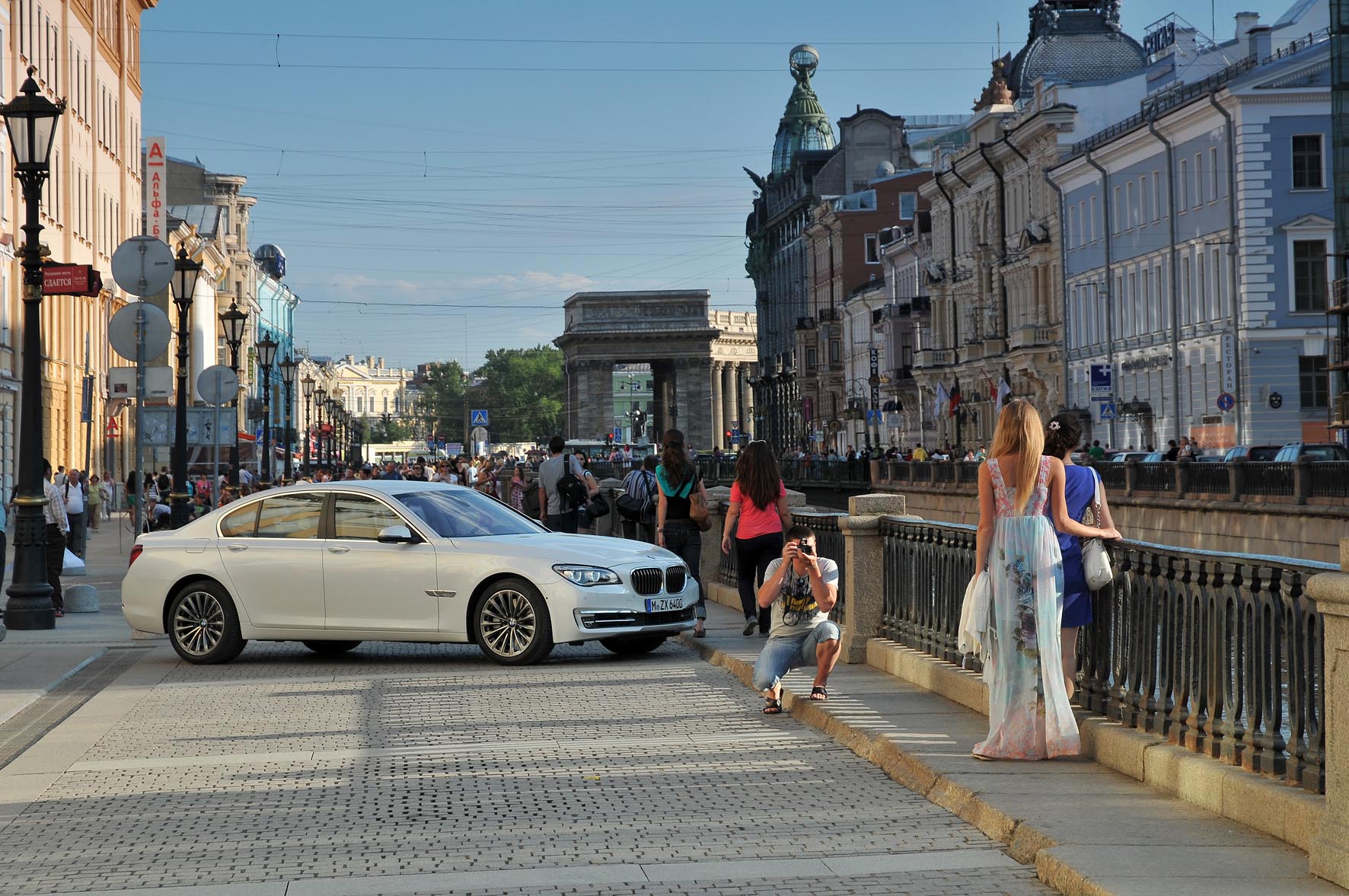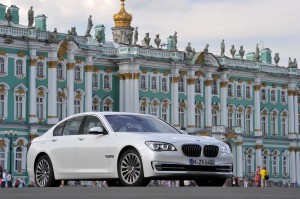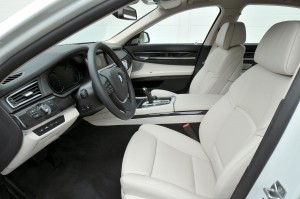BMW 750i
IN THE gold-plated world of the luxury saloon, Mercedes’ S-Class is king.
In recent years the German firm’s luxo-barge has undergone a radical transformation from visual wallflower to striking contender for Boldest Saloon of the Year Award.
Contrast this with BMW’s 7 Series. The previous generation car came out of the blocks in 2002 rocking a radical new look that divided opinion. The current fifth generation car is a noticeably more sober machine. Where the S-Class wears the latest in cutting edge Italian clothes, the 7 Series opts for Hugo Boss.
Still, this approach hasn’t harmed the big BMW’s chances. Demand for the car globally remains strong – especially so in emerging markets where the petrol models are often the default choice – while Europe still has a soft spot for the diesel variants.
Only one thing was holding the car back: its ride. Compared to more the more recent and advanced cars from Mercedes and Audi, the 7 Series lacked the same level of precision and comfort, which is hardly ideal for something pitched at the executive and chauffeur markets. This, then, is a thoroughly revised 7 Series, aimed squarely at the competition.
What do you mean you can’t see any changes? Okay, so it’s fair to say that BMW’s exterior designer was on a three-day week as the changes are limited to tweaks to the grille and new LED headlights. Granted, the latter is a big improvement, just don’t go looking for major sheet metal adjustments.
Progress has been made, though. Considerable gains have been made in the ride and comfort departments plus in boosting economy and reducing emissions across the range, thanks in part to the standard fit inclusion of a new eight-speed auto gearbox and engine stop-start. For diesel users – that’s the popular 730d and performance orientated 740d – that means a sub-150g/km CO2 rating for the former.
For the 750i petrol V8 model tested here there have also been useful reductions in running costs, and this model does much to highlight BMW’s impressive efforts with its Efficient Dynamics programme. The 443bhp V8 is no slouch, propelling the 7 Series to a sub five second zero to 62mph time and on to an electronically limited 155mph. But what’s really clever for a car of this size are the 32.8mpg economy and 199g/km CO2 figures, a result of BMW’s engineers tinkering with the engine’s Valvetronic technology to modify the intake system during periods of low activity. This isn’t as aggressive as Audi’s cylinder shutdown approach but, in BMW’s words, it’s more like ‘dimming’ them.
While a diesel model is more appropriate for cash-poor Europeans, the 750i is almost a default choice for buyers in emerging markets. And its performance should give a good indication as to how the cooking diesels will behave with the same mechanical changes.
To counter the criticism of the old car’s inconsistent ride quality, self-leveling rear suspension is now a standard feature across the range. This, combined with various detailed changes to the suspension hardware, delivers a welcome improvement when driving over mixed surfaces and the predictable potholes that scar urban landscapes the world over.
Also welcome is the inclusion of BMW’s Eco Pro mode in the grandly titled Driving Experience Control system. Essentially this offers the driver another choice alongside Comfort and Sport, and enables a firmer or softer ride, weighty or finger-light steering, the appropriately complimentary damper settings and, crucially, engine mapping to match the various modes. For many Comfort will offer a consistent balance of plush ride and engaging steering, although thankfully the Eco Pro setting doesn’t stifle the car’s potential either and does much to get you close to those impressive economy figures.
If you need a gentle reminder as to what mode you’re in, the car’s new 10-inch digital display changes colour to match. Don’t worry, BMW hasn’t embraced the 1980s with a Casio-style cheese-fest of digits. It’s more like Jaguar and Land Rover’s efforts, with the display replicating analogue clocks. But here’s the clever bit; they can be redrawn depending on the mode, so you’ve got a blue-tinged theme and ‘eco meter’ for Eco Pro and a red-themed display with oversize numbers for Sport.
The facelift has also allowed BMW to add the wealth of recent new hi-tech kit from lesser models, such as web connected services, high-end audio options, intelligent headlights and enhanced electronic safety and convenience aids.
Overall, then, this mid-life uplift for the 7 Series has done a good job of keeping the car in touch with the competition. Buyers at this end of the market are often a conservative bunch, which helps put the oh-so-subtle exterior changes into perspective.
What’s more impressive is the step forward in ride comfort. Don’t forget, this car and its longer wheelbase cousin are key movers in the executive chauffeur industry, and the new car’s set-up has done much to banish the shimmy and shake of the old car. Factor in BMW’s relentless approach towards boosting fuel economy and you’ve got a more rounded and appealing proposition.
FACTS AT A GLANCE
Model: BMW 750i, from £71,340 on the road.
Engine: 4.4-litre V8 petrol unit developing 443bhp.
Transmission: 8-speed automatic transmission as standard, driving the rear wheels.
Performance: Maximum speed 155mph, 0-62mph 4.8 seconds.
Economy: 32.8mpg.
CO2 Rating: 199g/km.
Latest posts by Sally - Silversurfer's Editor (see all)
- How to find your perfect walking holiday - May 1, 2024
- Introducing MyWay, your health partner, empowering your health journey - May 1, 2024
- The most important change to make to your diet after 50 - May 1, 2024
- Win a Power XL Grill Air Fryer Combo! - May 1, 2024
- Win a pair of MiRiDER folding e-bikes and get active this summer! - May 1, 2024






















